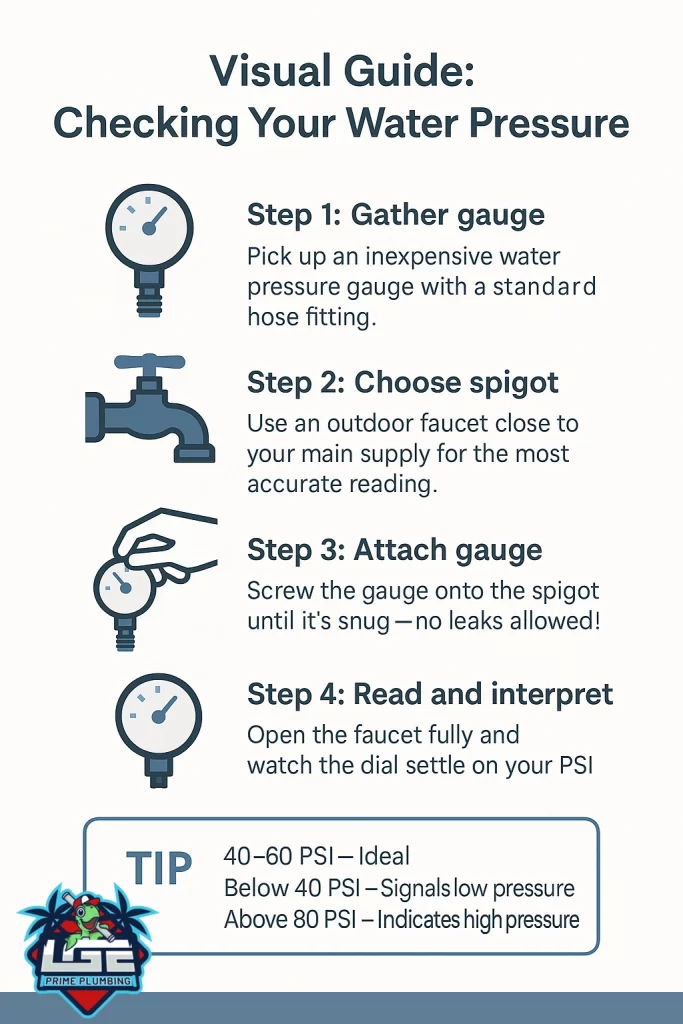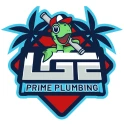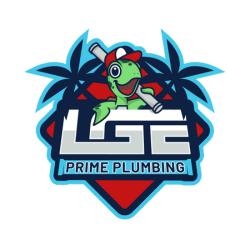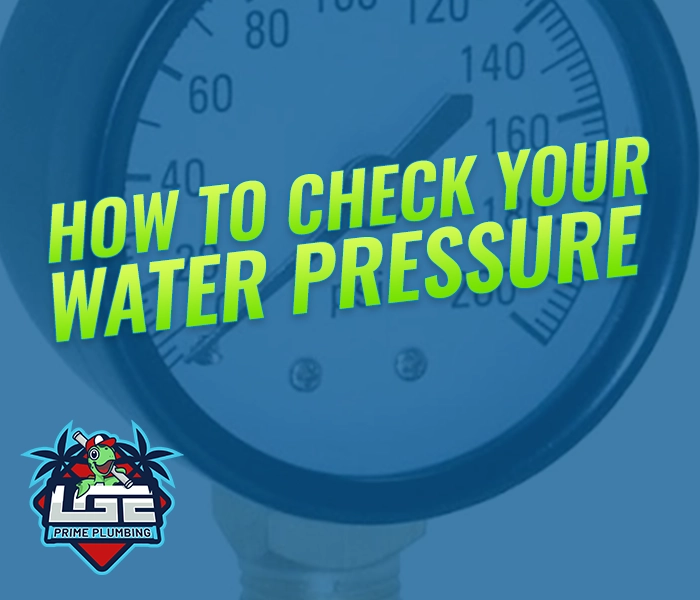Why is Water Pressure Important?
Contents
Water Pressure’s Role in Your Home or Business
Water pressure plays a crucial role in the performance and longevity of your plumbing system. It determines how effectively water flows through your pipes, affecting everything from shower pressure to the efficiency of your appliances. If the pressure is too low, you may struggle with weak water flow, while high pressure can put unnecessary stress on your plumbing system.
Your home’s plumbing system operates best within an ideal water pressure range of 40-60 PSI (pounds per square inch). Staying within this range ensures optimal performance while protecting your pipes and appliances.
What Happens If Your Water Pressure Is Too Low?
(Below 40 PSI)
Low water pressure can be frustrating and inconvenient, leading to:
✔ Weak water flow – Showers, faucets, and outdoor hoses may have a trickle rather than a strong flow. ✔ Slow-filling toilets – Toilets may take longer to refill after flushing. ✔ Poor appliance performance – Dishwashers and washing machines may not work efficiently, leading to longer cycles and incomplete washes. ✔ Inconsistent hot water – Tankless water heaters may struggle to activate or maintain a steady temperature. ✔ Leaks in old pipes – If your pipes are corroded, low pressure can make it harder for water to reach fixtures, causing buildup and potential damage.
What Happens If Your Water Pressure Is Too High?
(Above 80 PSI)
While strong water pressure may seem like a good thing, excessively high pressure can cause serious damage to your plumbing system:
✔ Pipe damage – High pressure can strain joints, valves, and pipes, leading to cracks and leaks. ✔ Leaky faucets and fixtures – Excess pressure can wear out seals, causing constant dripping and wasted water. ✔ Appliance damage – Washing machines, dishwashers, and water heaters are designed to function within a set pressure range—too much pressure can reduce their lifespan. ✔ Water waste and higher bills – More pressure means more water usage, which can increase your water bill over time. ✔ Banging pipes (water hammer) – High pressure can cause pipes to shake or produce loud knocking noises, which can damage fittings over time.
How to Check Your Home’s Water Pressure
- Purchase a water pressure gauge. Purchase a water pressure gauge with a hose connection. These are affordable and easy to use.
- Locate an outdoor faucet. Choose a faucet closest to your home’s main water supply for the most accurate reading.
- Attach the gauge. Screw the gauge onto the faucet and ensure it is securely tightened.
- Turn on water. Slowly turn the faucet on all the way and observe the pressure reading in the gauge.
Interpret the Results
- ✅ 40-60 PSI – Your water pressure is in the normal range.
- ⚠️ Below 40 PSI – Your water pressure is too low and may need adjustment.
- 🚨 Above 80 PSI – Your pressure is too high, which can damage pipes and appliances.
If your pressure is too high or too low, action may be needed to prevent plumbing problems.
 What Causes Pressure Problems
What Causes Pressure Problems
What Causes Water Pressure Problems?
Several factors can throw your home’s water pressure out of balance. Understanding these common causes can help you diagnose issues—and know when it’s time to call in a pro.
- Worn or faulty pressure regulators: Over time, a failing regulator can allow pressure to climb dangerously high, so we often recommend professional regulator replacement to keep your system safe.
- Clogged or corroded pipes: Mineral buildup inside your pipes and fixtures can restrict flow and create pressure fluctuations—our pipe cleaning services remove these blockages and restore even pressure.
- Municipal supply fluctuations: If you experience sudden pressure surges or drops, it usually points to changes in your city’s water system—feel free to contact us to investigate and stabilize your supply.
- Water‑logged expansion tanks: In hot‑water systems, an overfilled expansion tank can trigger pressure spikes when the heater fires up—a system inspection will ensure your tank is operating correctly.
- Partially closed main shut‑off valve: A not‑fully‑open main shut‑off valve can choke your flow and drop downstream pressure, so we always verify valve positions during our routine tune‑ups.
Why You Should Have a Professional Water Pressure Check
While checking water pressure is simple, diagnosing and fixing high or low pressure issues can be more complicated. A professional plumber can:
✔ Properly test your water pressure using specialized tools. ✔ Identify hidden issues like failing regulators, leaks, or pressure spikes. ✔ Install or adjust pressure regulators for safe and consistent pressure. ✔ Prevent long-term damage to your pipes and appliances.
If your water pressure is outside the normal range, a professional can safely adjust it to prevent costly damage.
Discover the importance of monitoring your home’s water pressure to ensure optimal functionality. Don’t wait until issues arise
Stay proactive by scheduling a Water Pressure Check with LGE Prime Plumbing today!
If your home’s water pressure is too high or too low, don’t wait until it causes leaks, pipe damage, or appliance failures. At LGE Prime Plumbing, we can test, adjust, and install pressure regulators to keep your plumbing system in top shape!
Ensure your home’s water pressure is just right—schedule a professional water pressure check today!


